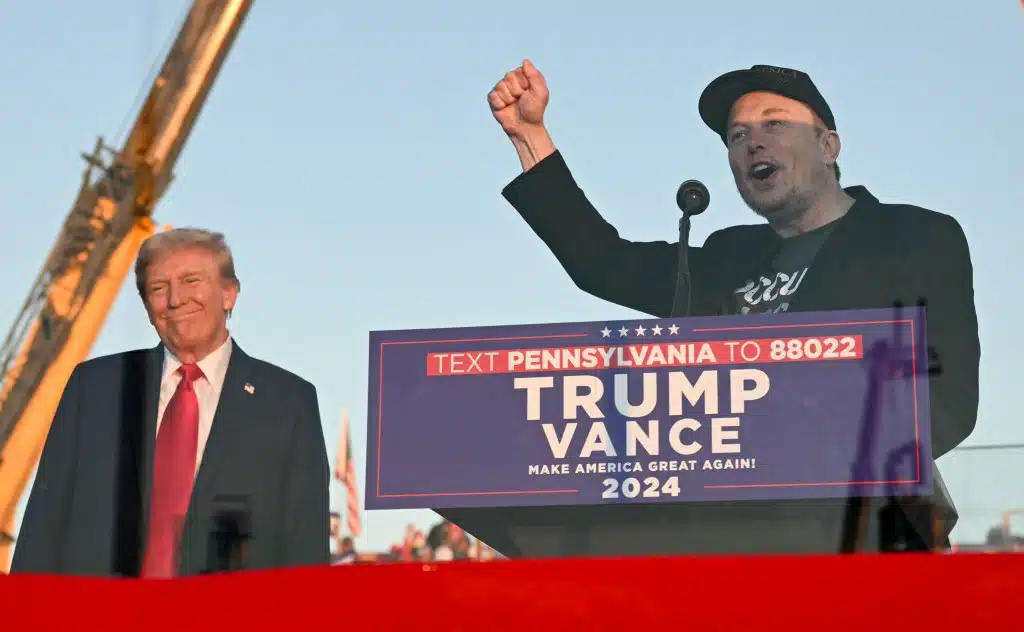In the face of legal challenges and allegations of US election influence, a Pennsylvania judge has permitted Elon Musk’s $1 million voter giveaway to continue.

After a Pennsylvania state judge declined to promptly halt the initiative, Elon Musk‘s $1 million voter giveaway will proceed.
The decision allows America PAC, Musk’s Political Action Committee (PAC), to continue providing financial incentives to registered voters in the days leading up to the November 5 U.S. presidential election.
Larry Krasner, the District Attorney of Philadelphia, had submitted a petition for an injunction, asserting that the giveaway is an illicit lottery intended to sway voters.
However, Judge Angelo Foglietta has suspended the proceedings, allowing Musk to participate in the electoral process while the federal court determines whether it wishes to hear the case.
Elon Musk win lawsuit over PAC for its $1 million voter giveaway
Judge Fogliatta elected to suspend the litigation against the Tesla CEO and abstain from conducting the trial on October 31st. He observed that a federal court has yet to determine whether it will assume responsibility for the case. Consequently, Musk’s $1 million donation campaign will persist until the election.
Krasner’s lawsuit, which was filed on October 28th, contends that the giveaway violates state consumer protection laws and has the potential to sway electors.
https://twitter.com/ajtourville/status/1852002051712033118
Krasner accused the initiative of being an unlawful lottery due to its provision of financial incentives for voting. The prosecutors assert that Elon Musk’s financial offers are in close proximity to the legal limits of contacting voters and purchasing their ballots, which can affect the fairness of election processes.
Nevertheless, the Tesla CEO’s attorneys contend that the case raises federal questions regarding freedom of expression and interferences with elections, which they believe should be resolved in federal court.
Ahead of the upcoming US election, giveaway has sparked concerns
Critics of the Tesla CEO’s PAC contend that the giveaway is not entirely transparent and could potentially mislead individuals. Krasner has also noted that the PAC has not specified the selection process for recipients or the protection of the data they obtain.
He also provided examples of what he claimed to be clear evidence that some of the recipients were associated with events related to Trump, which suggests that the process may not be wholly random.
Only electors in seven swing states are eligible to participate in the giveaway: Pennsylvania, Arizona, Georgia, Florida, Michigan, Wisconsin, and North Carolina.
Krasner’s office also referenced a warning from the Department of Justice for the United States, which purportedly indicated that the giveaway could constitute a violation of federal laws that prohibit payments in connection with voter registration. The initiative has not been officially opposed by federal prosecutors; however, the warning suggests that it may encounter additional legal complications.
Financial Influence and Social Media Campaign of the PAC Capture the Public’s Attention
Musk’s PAC has allocated a significant amount of resources to support Donald Trump’s campaign, with the industrialist reportedly contributing nearly $120 million to America PAC. The PAC has concentrated on mobilizing Trump supporters through social media campaigns and door-to-door outreach.
Elon Musk, who is an avid supporter of Donald Trump, has further exacerbated his influence on the election by promoting the former president on X, the social media platform he owns.
In response, Trump has publicly declared that he would appoint Elon Musk to serve as the head of a government efficiency commission if he were to be re-elected.
In contrast, the Harris campaign has reportedly organized volunteer efforts on a Discord server to disseminate pro-Harris content on social media, particularly on X. Musk responded by advocating for an investigation into these activities, indicating that they may require more thorough examination.
